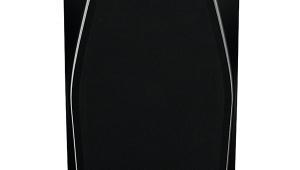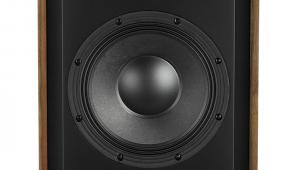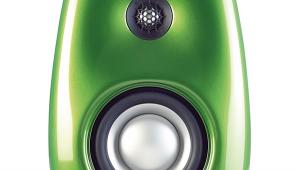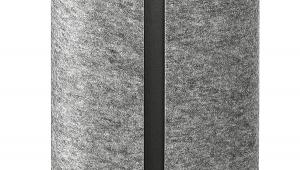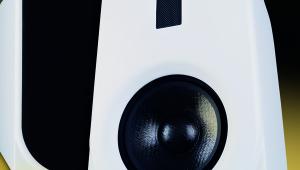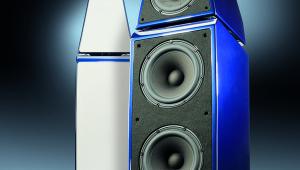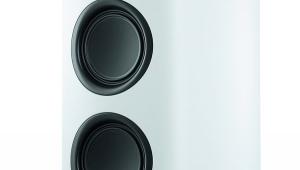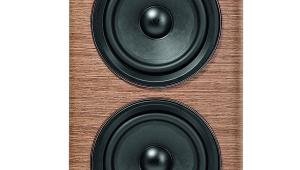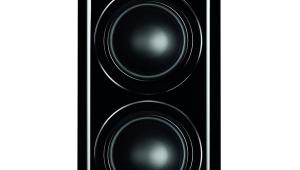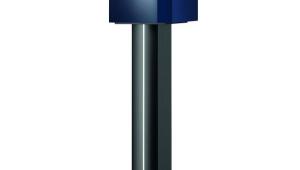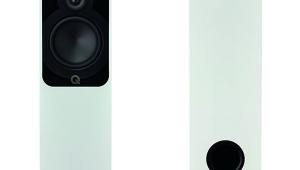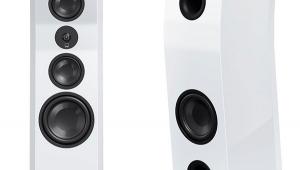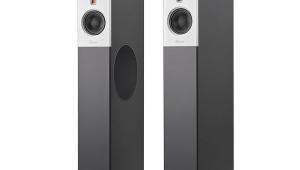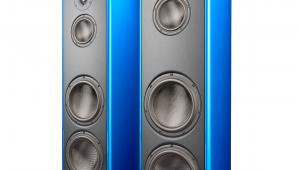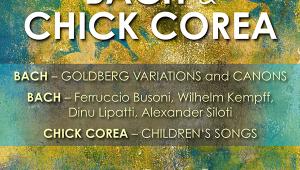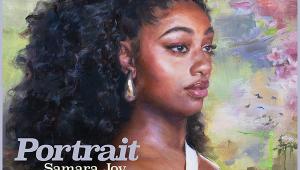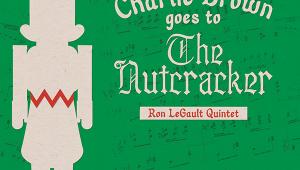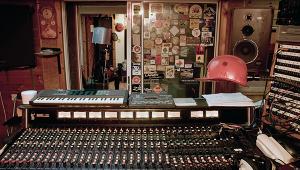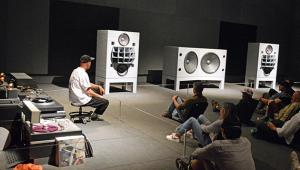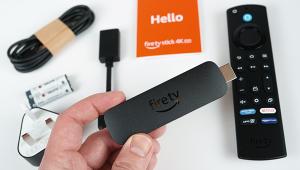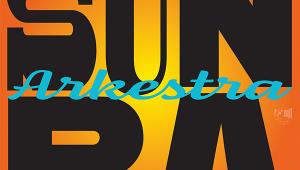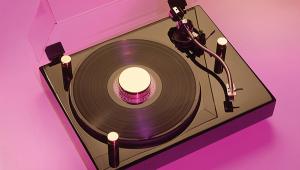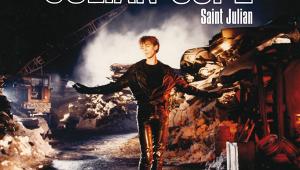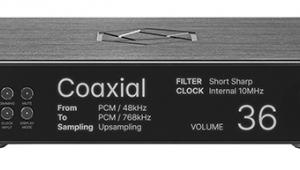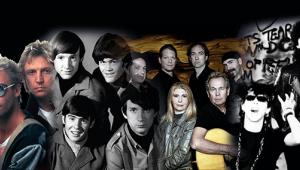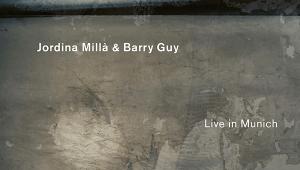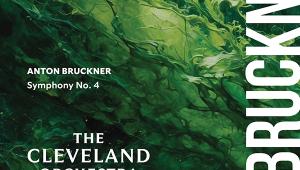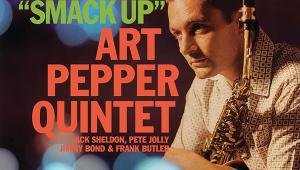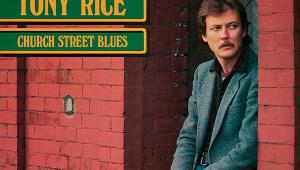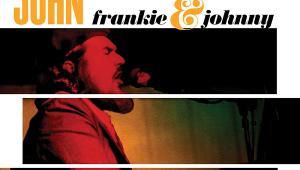Monitor Audio Silver 50 7G Loudspeaker Page 2
![]() Punchy
Punchy
The 50 7G is very much a chip off the Monitor Audio block – the UK brand has been selling compact bookshelf speakers with sultry looks for decades now, and clearly knows what it's doing. So I swiftly appreciated these two-way cabinets punch well above their weight, particularly when it comes to low-end punch.
There's a meaty bass presence to the sound, which brings a scale and sense of depth to your music that you might not think possible given the size of enclosure and driver. Of course, that 135mm bass/mid has a lot to do, and the nit-picker in me feels duty-bound to point out that the 50 7G can stumble with aspects of its midrange delivery. But the other part of me wants to rave about how fun but grown-up these bookshelf models sound.
Aware that the HFN review team has been criticised for its choices of 'mainstream' rock music, I began with 'In Shadows & Dust', a furious, less-than-three-minute riff assault from Canadian band Kataklysm [Shadows & Dust; Nuclear Blast NB 1032]. Clearly one of those tracks where the production budget was quickly wasted on beer, it didn't tell me much about the 50 7G's ability to unearth an instrument timbre or evoke a soundstage, but it did raise a smile with the way the double kick drum beats were hammered out with speed and impact. There was a pleasing bite to the razor-edged guitars too, and a generous bottom end that ensured this track sounded suitably menacing, rather than thin.
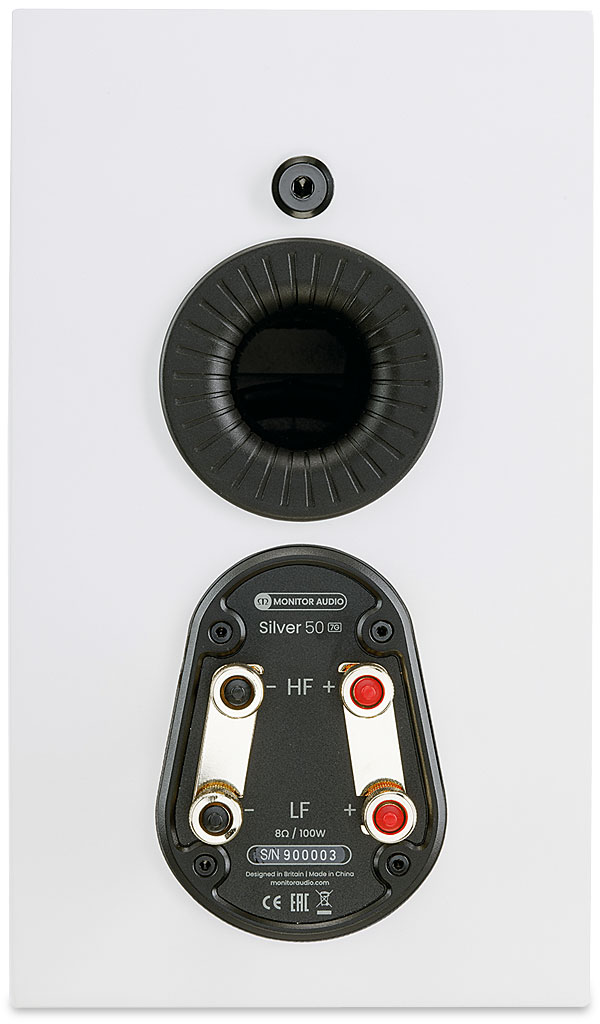
So these are loudspeakers that can make even the most lo-fi parts of your collection sound listenable, and this comes not just from their more-than-decent low-end reach and quick-fire presentation. They're also ripe for better recorded and mastered material, too, albeit bringing with them a character that aims more for warmth than utter transparency.
Breaking Free
The bounce and snap the 50 7Gs delivered with Queen's 'I Want To Break Free' [Queen: Greatest Hits II; Parlophone CDPMTV 2] demanded I turn up the volume to really luxuriate in it. The good vibes started with the synthesiser intro, which grew in size but didn't lose any of its focus, and continued through the bassline-dominated verses (bassist John Deacon penned this one, rather than guitarist Brian May). The vocal track, one of Freddie Mercury's more snarling, aggressive takes, was hived off from the rhythm section underneath, and by the time the track had got to the end of that Roland Jupiter-8 synth solo, I didn't want to break free – I wanted to press repeat.
It was natural that the sight of an MA bookshelf speaker recalled another model, the Bronze 100 [HFN Aug '20]. This has a lower overall specification and asking price, but pairs its C-CAM tweeter with a larger 200mm woofer. I remember finding its bass output unruly at times (particularly when positioned relatively close to the wall), and this led to some listening sessions where it felt the sound was hanging on for dear life when the lows came. There was no such problem with the 50 7G – its handling of bass, before the inevitable roll-off its small driver necessitates – seems remarkably even-handed and well-integrated. And while some experimentation with placement is still warranted to make sure you're not overdoing boundary gain, these cabinets prove pretty unfussy.
Nearfield Naturals
Stereo imaging is helped by a strong sense of centralised elements being free from the enclosures left and right, but horizontal expansion and integration is less impressive; there's only so much these diddy speakers can do to fill a space. My other criticism, alluded to earlier – that sometimes midband details lack presence, giving a somewhat mushed feel to multi-instrumental moments – probably only really warrants mentioning in relation to far pricier loudspeakers.
For instance, in ABBA's 'Dancing Queen' [ABBA Gold; Polydor 517 007-2], the smorgasbord of vocal harmonies, piano, drums and bass, plus maybe a synthesiser or two, sounded congested. Meanwhile, when female vocalists Adele and Alicia Keys really start going for it, in 'Hello' [25; XL Recordings XLCD740] and 'Empire State of Mind' [The Element Of Freedom, J Records], respectively, they sound a little more strained here than on loudspeakers with greater confidence.
Elsewhere, however, the 50 7G is a dab hand at conveying musical details and capturing the physicality of instruments, particularly when given a quality source, such as the John Williams orchestral score for Star Wars: The Force Awakens [Original Motion Picture Soundtrack; Walt Disney Records]. The 'Main Title', essentially a rehash of his 1977 original, jumped out of these loudspeakers with a thrilling fanfare blast of trombone and horn, which had a throaty edge and generous weight, followed by silkier strings. It was a performance of real dynamism from a pair of speakers with a real-world asking price.
Hi-Fi News Verdict
A genuine bookshelf speaker with an install-me-anywhere attitude, the Silver 50 7G is a perfect partner for a bijou amp and easy to drive, too. Low-end lovers might look warily at its 135mm bass/mid driver, but this dimpled dome puts on a fine show, helping
craft a sound that's rich, deep and unfatiguing, but also responsive and detailed. Add the fashion parade looks to the equation, and it's hard not to love.
